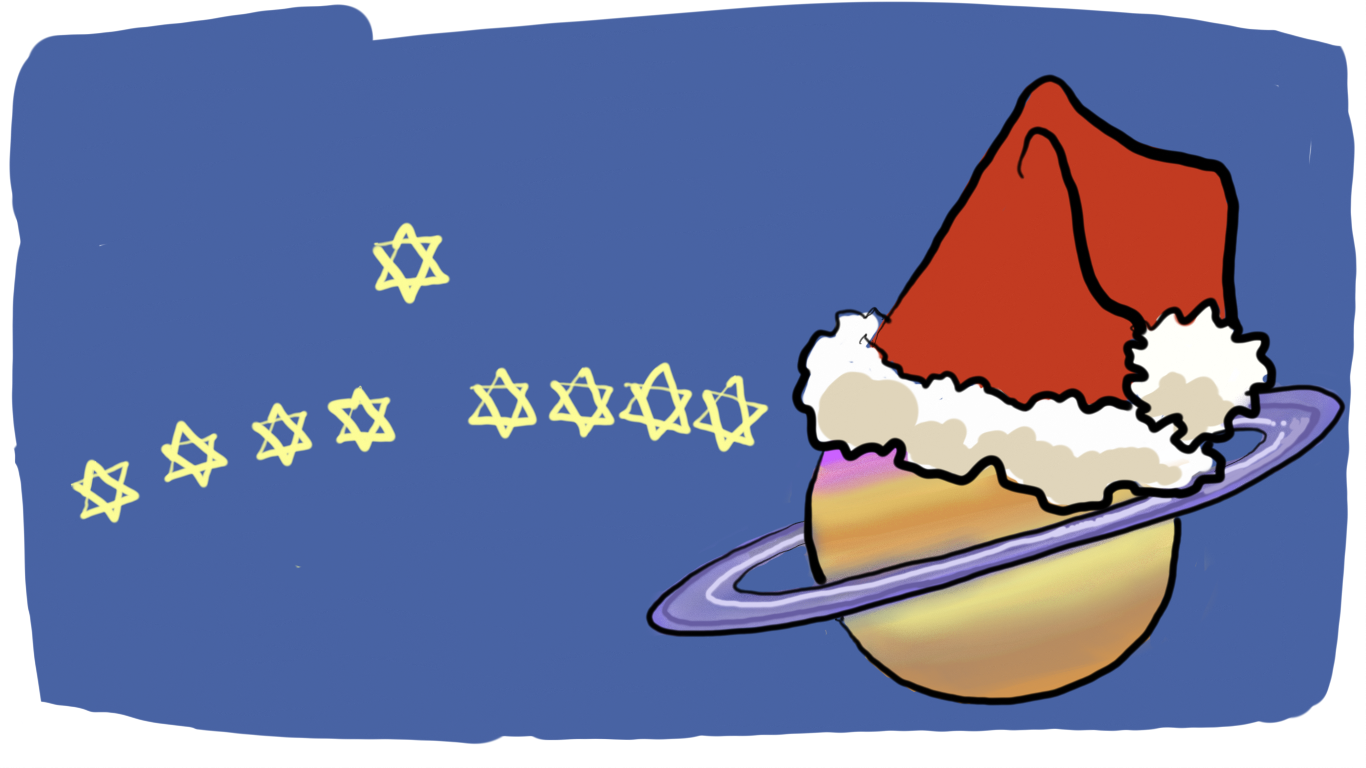It's December again, the tenth1 month, time for the cavalcade of winter holidays.2 Christmas, of course, dominates the marketplace. Sooner or later, someone will remind you that all your favorite Christmas traditions, from the tree to the overeating, are from a pagan festival. You can now reply: yes, specifically, it's the ancient Roman festival Saturnalia, a revelry in honor of Saturn, the god of agriculture. By teaching the Romans how to farm, Saturn elevated them to a civilized people.
For those who insist that Christmas is purely a religious holiday, you'll be happy to know that noel comes from the Latin natalis dies (day of birth). Those cards that just say "Noel" on them are indeed referring to the "reason for the season."
By now, everyone knows that Hanukkah is not remotely the most important holiday in Judaism. The two most important holidays are Rosh Hashanah and Yom Kippur, and there are still a few more that rank above Hanukkah. Of course, Hanukkah can fall in November or December, but it seems appropriate to include it here. The Hebrew word חנוכה (hanukkah) means dedication or consecration. The eight-day festival commemorates the purification of the Temple in Jerusalem circa 165 BCE.3
In 1966, after the Watts riots, an American named Maulana Karenga created Kwanzaa as an alternative for the Black community to the holidays celebrated by the dominant society. The name comes from the Swahili word kwanza, meaning first, and specifically from the phrase matunda ya kwanza (first fruits). First fruits festivals are celebrated in December and January in Southern Africa to mark the solstice. The additional a at the end gives the name seven letters to go with the seven principles of Kwanzaa.
During the five days of Pancha Ganati, Hindus honor the god Ganesha—specifically Lord Panchamukhi Ganapati, a five-faced form of Ganesha. During the holiday, celebrants exchange cards and gifts with family, loved ones, friends, and co-workers.
On the last day of the year, the Japanese celebrate Omisoka (大晦日) in preparation for the new year. They cook food, clean their homes, and visit Shinto shrines. At midnight, a large cast-iron bell rings at each temple to signify the 108 earthly wants that created human suffering.
Around the world, people celebrate the solstice, which comes from the Latin sol (sun) and stit- (stopped). Some of these traditions have religious origins. If the ones I've described don't work for you, you can always try the ten days of Newtonmas, starting on Sir Isaac Newton's birthday: December 25th.
Etymologically, at least. From the Latin decem (ten), from PIE *dekm- (ten). Julius and Augustus Caesar decided they needed months named after them, so they inserted July and August. That messed up the numbering of the last four months of the year. I don't know why they didn't change the names of those months to November, December, Undecember, Duodecember. How cool would it be to have a month called Undecember? You could have a whole holiday about takebacks.
We're not discussing Festivus here.
I had heard the story about the miracle of the oil and the Maccabean revolt, how during the rededication of the Temple in Jerusalem there was only enough lamp oil for one day, yet it lasted eight. It would have been easy to add "and celebrates the miracle of the oil" to the end of the paragraph and leave it at that.
It turns out to be more complicated. First Maccabees, which appears in the Bible but not the Tanakh, describes the rededication but not the miracle of the oil. The miracle is in the Talmud, which presents three options for how to light the menorah during Hanukkah. There are two rabbinical schools of thought about the proper order in which to light the candles: the one espoused by the House of Hillel, accepted by Jewish law, and the one preferred by the House of Shammai.
This is too much to cover in a silly little piece about the etymology of winter holidays, but it is interesting that there is so much to the story. For a bit more than I reveal here, read The Miracle at chabad.org.



